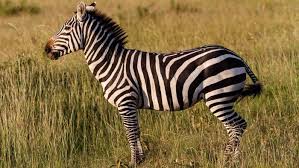BASIC FACTS ABOUT ZEBRAS
.jpg)
.jpg)
.jpg)
Firmly identified with stallions and jackasses, the zebra (subgenuses Hippotigris and Dolichohippus) is best known for its high contrast striped body. Truth be told, zebra stripe designs are one of a kind to every person. These stripes are accepted to be disguise gadgets that assistance zebras shroud well in the grass.
Eating regimen
Zebras are herbivorous and principally eat an assortment of grasses. They are additionally known to eat bushes, herbs, twigs, leaves and bark.
Populace
Generally, fields zebras number at around 750,000. Generally, there were more than 15,000 Grevy's zebras. Be that as it may, there are just around 2,500 residual today. There are 600-700 cape mountain zebras and around 800-1300 Hartmann's mountain zebras in nature.
RANGE
Fields zebra are found on the savannas from Sudan to northern Zimbabwe in eastern Africa. Grevy's zebras are currently generally confined to parts of northern Kenya. Mountain zebras happen in southwestern Africa with cape mountain zebras in South Africa and Hartmann's mountain zebras in Namibia and Angola.
Conduct
Zebras as extremely social creatures and live in expansive gatherings called 'arrays of mistresses.' Plains and mountain zebras live in collections of mistresses that are comprised of one stallion and up to six female horses and their young, while Grevy's zebras met up as gatherings for brief timeframes. At times crowds meet up to shape brief gatherings of up to 30 individuals. Zebras rest standing up, and just when they are in bunches that can caution them of threat. On the off chance that they recognize a predator, they will bark or whinny noisily to caution the others in the gathering.
Generation
Mating Season: Year round and in light of species.
Incubation: 12-13 months.
Litter size: 1 foal.
Zebra foals are conceived with darker and white stripes rather than highly contrasting stripes. Female horses by and large ward off every other zebra for 2-3 days until the point that her foal perceives her by sight, voice and smell.
Dangers
The zebra's greatest dangers are natural surroundings misfortune because of farming and cultivating and rivalry for water with animals. They are additionally chased for their skins.
In the scope of the Grevy's zebra, where survival of youthful is connected to the accessibility of scrounge, environmental change is fueling dry spells on effectively debased rangeland. Dry spells additionally drive the creatures to gather at outstanding water sources, expanding the occurrence of infection transmission
Congratulations @designer-nouman! You have completed some achievement on Steemit and have been rewarded with new badge(s) :
Click on any badge to view your own Board of Honor on SteemitBoard.
For more information about SteemitBoard, click here
If you no longer want to receive notifications, reply to this comment with the word
STOP